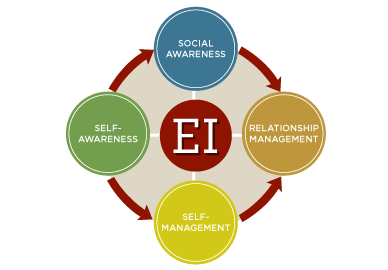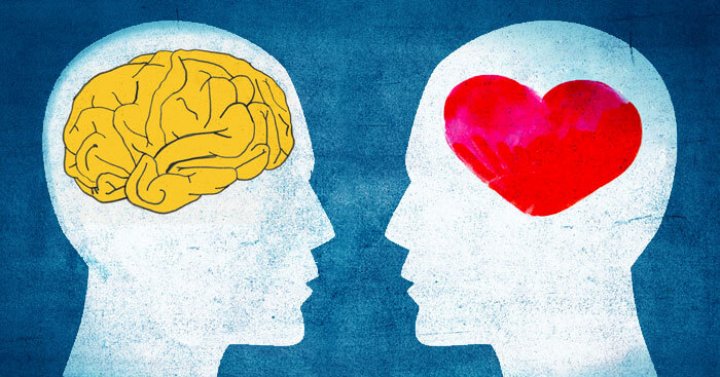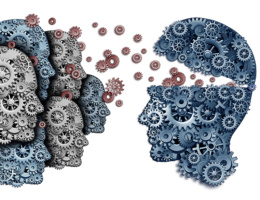Importance of Being Emotionally Intelligent

Our actions are largely dependent on our emotions. When we deal with people, we deal with our and their emotions. It is therefore critical for us to examine our emotions, and see how they affect us, and what we can do about it.
 Instead of letting our emotions lead our lives, how about we lead our lives by better managing and regulating our emotions? This is where Emotional Intelligence comes in. Emotional Intelligence is the capacity for recognizing our own feelings and those of others, for motivating ourselves and for managing emotions effectively in ourselves and others.
Instead of letting our emotions lead our lives, how about we lead our lives by better managing and regulating our emotions? This is where Emotional Intelligence comes in. Emotional Intelligence is the capacity for recognizing our own feelings and those of others, for motivating ourselves and for managing emotions effectively in ourselves and others.
We are taught about math, science, history, and various other subjects in school, and this disciplined education, coupled with environmental factors like better nutrition, access to the Internet, computer games and puzzles have increased our collective intelligence. In other words, we have a higher IQ, but what about our EQ??? Emotional intelligence or EQ is as crucial as academic excellence or a B-school degree.
A high IQ and smartness can get you a good job, but to be successful in that job, you have to have a high Emotional Intelligence. It is your emotional intelligence that matters on the ground because our emotions lead to actions.
Decades of research now point to emotional intelligence as being the critical factor that sets star performers apart from the rest of the pack. The connection is so strong that 90 percent of top performers have high emotional intelligence.
When it comes to happiness and success in life, emotional intelligence (EQ) matters just as much as the intellectual ability (IQ). Emotional intelligence helps you build stronger relationships, succeed at work, and achieve your career and personal.
Emotional Intelligence (EQ or EI) is a term created by two researchers – Peter Salavoy and John Mayer – and popularized by Dan Goleman in his 1996 book of the same name.
Emotional Intelligence is defined as a tool to recognise, understand and manage our own emotions and recognise and understand and influence the emotions of others.
In practical terms, this means being aware that emotions can drive our behaviour and impact people (positively and negatively), and learning how to manage those emotions – both our own and others – especially when we are under pressure.
If you have high emotional intelligence you are able to recognize your own emotional state and the emotional states of others, and engage with people in a way that draws them to you. You can use this understanding of emotions to relate better to other people, form healthier relationships, achieve greater success at work, and lead a more fulfilling life.
Emotional intelligence consists of four attributes:
 Self-awareness – You recognize your own emotions and how they affect your thoughts and behaviour, know your strengths and weaknesses, and have self-confidence.
Self-awareness – You recognize your own emotions and how they affect your thoughts and behaviour, know your strengths and weaknesses, and have self-confidence.
Self-management – You’re able to control impulsive feelings and behaviours, manage your emotions in healthy ways, take initiative, follow through on commitments, and adapt to changing circumstances.
Social awareness – You can understand the emotions, needs, and concerns of other people, pick up on emotional cues, feel comfortable socially, and recognize the power dynamics in a group or organization.
Relationship management – You know how to develop and maintain good relationships, communicate clearly, inspire and influence others, work well in a team, and manage conflict.
One resource that provides development actions for increasing your EQ skills is the book Emotional Intelligence 2.0 by Travis Bradberry and Jean Greaves.
Other resources for deepening your knowledge and application of EQ are a number of works by Daniel Goleman. I’ll leave you with one quote from Goleman’s book Primal Leadership, “No matter what leaders set out to do – whether it’s creating strategy or mobilizing teams to action – their success depends on how they do it. Even if they get everything else just right, if leaders fail in this primal task of driving emotions in the right direction, nothing they do will work as it could or should.”
Your emotional intelligence is the foundation for a host of critical skills—it impacts most everything you do and say each day.
Image courtesy – www.cyberschoolgroup.com. www.upliftconnect.com https://graffox.wordpress.com Pinterest
- Pooja Guha-Bansode
- July 13, 2017
- 0 Comment







